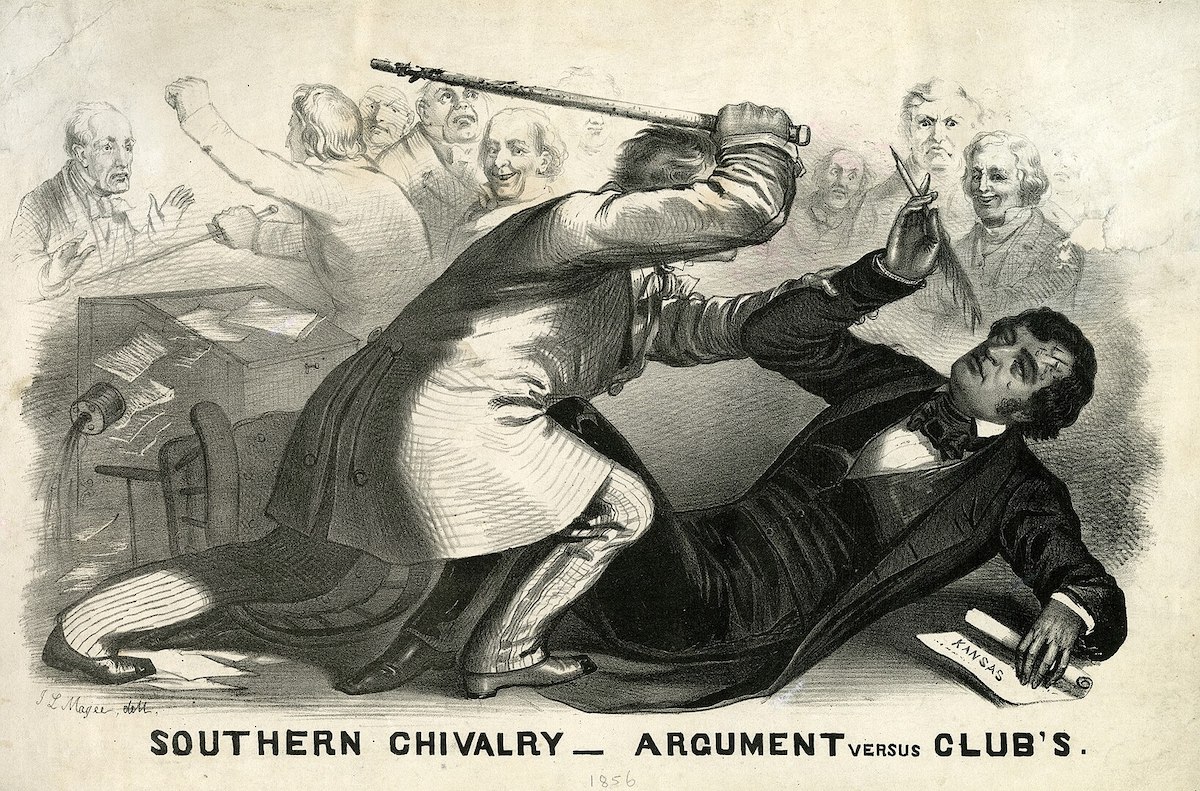The recent murder of conservative commentator Charlie Kirk has reignited discussions about political violence in the United States, drawing parallels to historical events that shaped the nation. Many commentators are expressing concern over the current state of political discourse and the potential for escalating violence.
Explainer Charlie Kirk Overview
In May 1856, U.S. Senator Charles Sumner delivered a powerful speech denouncing the use of force to expand slavery into Kansas. His remarks highlighted the deepening polarization within the country, as the debate over slavery evolved into a struggle for the very nature of American governance. Sumner argued that the conflict was not merely about territorial disputes but about the future of republicanism versus oligarchy.
Days after his speech, Sumner was brutally attacked by Representative Preston Brooks of South Carolina, who caned him in the Senate chamber. Brooks, accompanied by fellow representatives, prevented any intervention, leaving Sumner severely injured. The incident shocked the nation, with Southern newspapers praising Brooks and blaming Sumner for provoking the violence.
"The violence and the approving response to the violence verified exactly what Sumner claimed at the beginning of his speech," noted Dr. Forrest A. Nabors, an associate professor of political science at the University of Alaska Anchorage. He emphasized that both Sumner and Kirk advocated for their causes through speech, contrasting their methods with those of their attackers, who resorted to violence.
Critics of the current political climate argue that there is a growing trend of intolerance towards differing viewpoints, particularly from the left. They point to instances where conservative voices have been silenced or attacked, suggesting a broader societal issue regarding the acceptance of political discourse.
Supporters of a more civil political environment advocate for a return to the principles of republicanism, urging individuals to engage in dialogue rather than resorting to force. "We must resist the temptation to respond to force in kind and continue to speak out," Nabors stated, reflecting on the importance of maintaining open communication.
The historical context of political violence in America serves as a cautionary tale. The events leading up to the Civil War illustrate how deeply entrenched divisions can lead to catastrophic outcomes. As the nation grapples with its current polarization, many are calling for a renewed commitment to civil discourse and the principles of democracy.
In the aftermath of Kirk's murder, some individuals on the left have expressed their disapproval of violent tactics used by extremists within their ranks. This mirrors sentiments from the antebellum period when violence against opponents often led to shifts in political allegiance. Representative George Julian of Indiana noted that each act of aggression by the Southern oligarchy prompted some Democrats to join the Republican Party, altering the political landscape.
As Americans reflect on the implications of political violence, the call for restraint and reasoned dialogue becomes increasingly urgent. The actions taken today will shape the future of political engagement and the legacy left for future generations.
In a time of heightened tensions, how citizens choose to express their views and engage with one another will significantly impact the nation’s trajectory. The lessons from history remind us that the path to resolution lies in dialogue, not violence.
Why it matters
- Charlie Kirk's murder highlights the escalating political violence in the U.S., prompting urgent discussions on civil discourse and tolerance.
- Historical parallels to the antebellum period underscore the dangers of political polarization and violence in shaping governance.
- The incident raises concerns about the silencing of conservative voices and the broader implications for political engagement in America.
What’s next
- Calls for a renewed commitment to civil discourse are gaining momentum among political leaders and commentators.
- Advocacy groups are organizing forums to discuss the importance of dialogue over violence in political discussions.

